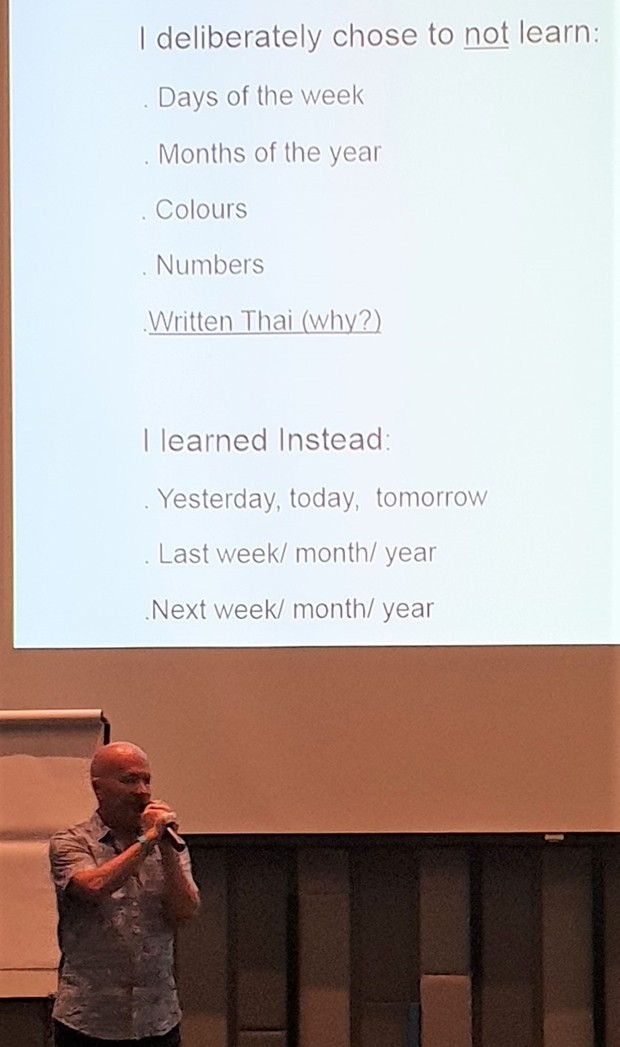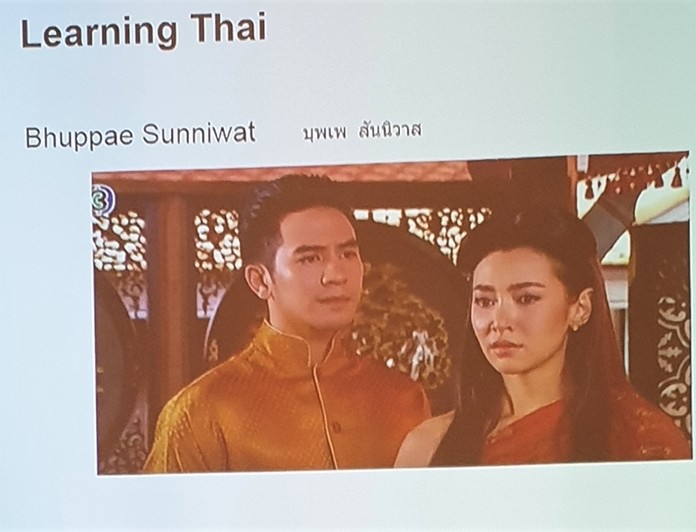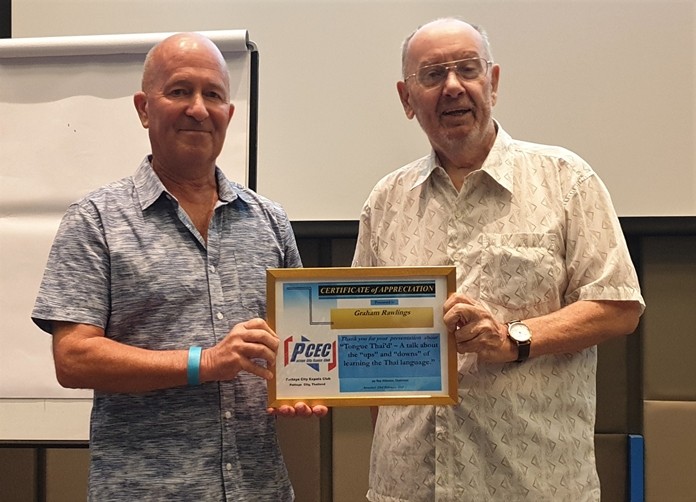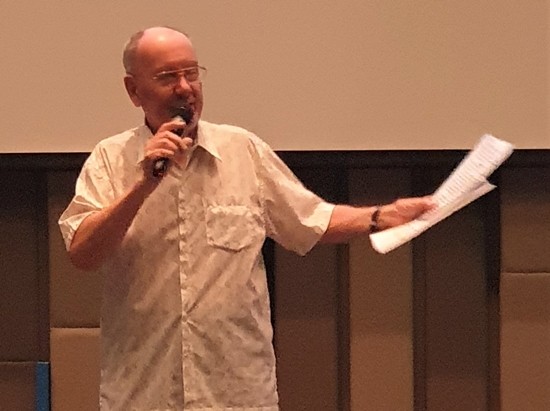
Graham Rawlings presented a cleverly entitled ‘Tongue Thai’d’ – A talk about the “ups” and “downs” of his learning the Thai language’ to the Pattaya City Expats Club on Sunday, February 23. This was quite an informative and entertaining talk on his journey from zero knowledge upwards. His presentation included what worked for him and what didn’t. He included evidence-based advice on how to learn Thai, relevant to almost any Expat, and his motivation to do it, plus some do’s and don’ts and clues as to why Thai people speak English the way they do. He included a few useful phrases that he has picked up.
Graham lives in England. He loves reading and he gives reading assistance to 5-7 year old children. He considers himself to be an amateur linguist. He notes he learned French and German at school, and like most people, quickly forgot both. Later, he studied French “intensif” (intensely) in Cannes.
He has visited several countries in Western Europe in the distant past, became a frequent visitor to Germany, and somehow developed an “ear” for foreign languages and accents. He is now a tourist, and has become particularly interested in Southeast Asia and the Thai language.
He qualified to teach English to foreigners more than 20 years ago. Studied Engineering at college and Business Management at University; working for more than 30 years in the Automotive Engineering sector.
Beginning his presentation, he posed the questions, “Why bother to learn Thai since everyone speaks English already” and “Why we shouldn’t learn Thai.” He noted that the answer to the latter question is often the lament that it is difficult as it is a tonal language. Graham’s opinion was that learning Thai or any language has to derive from an inner strong motivation to do so or it will not succeed.
The next question he asked, so you are motivated…where do you start? Internet search or the Rosetta method were often mentioned to him, but Graham said it was not the right path for him. He eventually settled on the Pimsleur sets of Compact Disks (CDs) which felt that for him with a lot of work, were more successful.

Walking down his road of discovery, he said that what he purposely did not learn were days, months, colors, numbers and the written language. He found in the Thai language, it was much more beneficial to learn instead, how to say yesterday, today, tomorrow, next, and last.
Graham said although CDs were a start, for him to rise to another level of conversational Thai he needed feedback from a Thai speaking person as they could answer questions and make corrections that could not be made with CDs. To move to this level Graham said he partnered with someone at the University of London SOAS and this became an important upward movement in his learning Thai.
He mentioned that his personal breakthrough came when he ventured out to converse with someone in the real world which he did after two years of studying. This was daring because even if you are well versed in what you are going to say, you can’t predict what the response will be or how fast it will come at you. If you find a patient converser then your level of confidence will rise dramatically.

Graham listed the most common mistakes in learning Thai. In order these were 1) Not listening enough, 2) Lacking curiosity, 3) Rigid thinking, 4) Using a single method, and 5) most likely the most significant, fear (mostly of making mistakes).
Progress in language proficiency, he explained, includes 5 stages. The first stage is the silent period where you just listen. This will last perhaps 6 months. Second level is the use of short phrases in public. This phase too will last about 6 months. Moving on to level 3 which is the implantation of short questions and answers, may last from 1 to 3 years. The next level is intermediate reflecting some level of fluency with more complicated structures and expressing thoughts and opinions. The last, of course, would be ‘mature’ where your language skills approach the level of a native speaker.
In conclusion, he noted that as far as difficulty, learning Thai is at a level 4 difficulty task in a system of levels 1-5 measured for English speakers. The major players in his Thai language development were the language CDs, the language exchange with a real person with feedback and overcoming the fear of making mistakes to just go out and talk.
After the presentation, the MC brought everyone up to date on the upcoming club events and others of interest. This was followed by the Open Forum where questions are asked and answered about Expat living in Thailand, especially Pattaya. For more information about the PCEC, visit their website at: www.pcec.club.

 |
 |
 |





